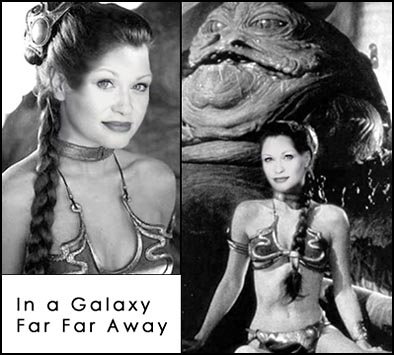The Myth of the Great American Novel
 Mark quotes J. W. DeForest who defined the would-be-GAN as "the picture of the ordinary emotions and manners of American existence" (The Nation, 1868). Mark astutely points out that such an ideal cannot be sustained, since literature is static — one can capture an impression of a nation's psyche in the moment the novel is written, but as society keeps changing, any description soon becomes outdated. Citing Huck Finn and Moby Dick as examples, Mark illustrates how these books have turned almost into museum pieces — they are works that capture the zeitgeist, to use Mark's word, of a specific time period, but which to a modern reader seem far removed.
Mark quotes J. W. DeForest who defined the would-be-GAN as "the picture of the ordinary emotions and manners of American existence" (The Nation, 1868). Mark astutely points out that such an ideal cannot be sustained, since literature is static — one can capture an impression of a nation's psyche in the moment the novel is written, but as society keeps changing, any description soon becomes outdated. Citing Huck Finn and Moby Dick as examples, Mark illustrates how these books have turned almost into museum pieces — they are works that capture the zeitgeist, to use Mark's word, of a specific time period, but which to a modern reader seem far removed.Another reason that I feel there cannot be a definitive GAN is that the population of America is so heterogenous — very hard for one novel to cover it all. I think Mark is on the money when he suggests we compile for ourselves a list of what we consider to be some American novels which we consider truly great. Mark has a refreshing list which is sure to make one think about the subject with new eyes.
Here are a few novels I consider worthwhile — some of them are a part of the popular academic canon, and justly so. This list is not intended to be definitive or complete — please consider this only as books on this blogger's "Great American Novels" List:
The Grapes of Wrath by John Steinbeck. (1939)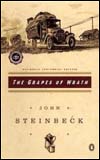 The story of the Joad family's exodus from the Oklahoma Dust Bowl in the 1920's to the 'promised land' of California. Steinbeck is a master of describing both the inner and outer workings affecting people's lives. Rife with social commentary that still resonates today, engaging characters, deft symbolism, and passages of divine eloquence, not the least of which is Tom's last speech to Ma. This is one of the staples of American lit, and one that deserves its place in university curriculi. The story of the Joad family's exodus from the Oklahoma Dust Bowl in the 1920's to the 'promised land' of California. Steinbeck is a master of describing both the inner and outer workings affecting people's lives. Rife with social commentary that still resonates today, engaging characters, deft symbolism, and passages of divine eloquence, not the least of which is Tom's last speech to Ma. This is one of the staples of American lit, and one that deserves its place in university curriculi.Lolita by Vladimir Nabokov. (1955)  On the face of it, the tale of a man's obsession with nubile girls, the story transcends its subject matter. Nabokov's prose is rich, his narrator magnetic, the psychological portrayals so multifaceted and deep that the characters breathe themselves to life off the page. Rich in language and so enwrapt in symbolism that unlocking it all on a first read is not possible — yet this is not a "Ulysses" by Joyce; not a book that is at all a difficult read, and enjoyable even on a surface level. It is telling of Nabokov's mastery of storytelling, that by the end of the book the reader can understand the narrator's psyche and emotional world to the point of feeling grief and tragedy, and a brush with the sublime on the final pages, for a fictional character that on a very basic level is a human monster. On the face of it, the tale of a man's obsession with nubile girls, the story transcends its subject matter. Nabokov's prose is rich, his narrator magnetic, the psychological portrayals so multifaceted and deep that the characters breathe themselves to life off the page. Rich in language and so enwrapt in symbolism that unlocking it all on a first read is not possible — yet this is not a "Ulysses" by Joyce; not a book that is at all a difficult read, and enjoyable even on a surface level. It is telling of Nabokov's mastery of storytelling, that by the end of the book the reader can understand the narrator's psyche and emotional world to the point of feeling grief and tragedy, and a brush with the sublime on the final pages, for a fictional character that on a very basic level is a human monster. Beloved by Toni Morrison. (1987)  The story of an ex-slave mother, her family past and present, and the ghosts that haunt. It is the story of one particular "Beloved", and all the beloveds who were the casualties of slavery, of man's cruelty to man. This novel, in my opinion, is nearly flawless. Morrison writes with such an inspired voice, everything is superbly crafted without seeming so, the language in both prose and dialogue is almost tactile, sensory. The story is eerie and grounded at once, the characters unforgettable, this is a novel the reader will carry in active memory for a long time and will never be able to forget. Please do not ever watch the horrid movie made of this book. The story of an ex-slave mother, her family past and present, and the ghosts that haunt. It is the story of one particular "Beloved", and all the beloveds who were the casualties of slavery, of man's cruelty to man. This novel, in my opinion, is nearly flawless. Morrison writes with such an inspired voice, everything is superbly crafted without seeming so, the language in both prose and dialogue is almost tactile, sensory. The story is eerie and grounded at once, the characters unforgettable, this is a novel the reader will carry in active memory for a long time and will never be able to forget. Please do not ever watch the horrid movie made of this book.American Gods by Neil Gaiman. (2001) 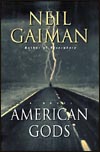 Academia still for the most part eschews and belittles the genre of Science Fiction. This is a grave injustice to a genre that I would call the Great American Genre of the 20th Century. I think I shall do a whole post on that topic very soon. Back to the novel at hand. American Gods is an absolutely ingenious story of the gods of various cultures who arrived to this continent with their respective immigrant cultures, but who over time grew forgotten, and now can barely eke out an existence. New gods, the gods of Internet and Credit Card and so on, have arisen, and a war is coming between the ancient and the modern gods. Told from the point of view of Shadow, a mortal caught in the midst of it all, the book is inspired. Gaiman writes prose that is electric and sinuous, weaving in mythology and folklore, while keeping the story very visceral. This is a book that I think comes very close to the parameters of a GAN — it covers so many time periods and so many cultures' deities, that it is fictionally representative of much of what it means to be an American. It is also written with delectable references to literature past. My favorite part of the book has to be when the main character asks one of the Norse god Odin's ravens: Academia still for the most part eschews and belittles the genre of Science Fiction. This is a grave injustice to a genre that I would call the Great American Genre of the 20th Century. I think I shall do a whole post on that topic very soon. Back to the novel at hand. American Gods is an absolutely ingenious story of the gods of various cultures who arrived to this continent with their respective immigrant cultures, but who over time grew forgotten, and now can barely eke out an existence. New gods, the gods of Internet and Credit Card and so on, have arisen, and a war is coming between the ancient and the modern gods. Told from the point of view of Shadow, a mortal caught in the midst of it all, the book is inspired. Gaiman writes prose that is electric and sinuous, weaving in mythology and folklore, while keeping the story very visceral. This is a book that I think comes very close to the parameters of a GAN — it covers so many time periods and so many cultures' deities, that it is fictionally representative of much of what it means to be an American. It is also written with delectable references to literature past. My favorite part of the book has to be when the main character asks one of the Norse god Odin's ravens:
|
So that's my two cents on the subject of "The Great American Novel." By no means an exhaustive or all-encompassing treatment of the subject, but a start nonetheless. And I guarantee you will be enriched by reading any or all of the above.
Tags: Books | Literature
Labels: mythology
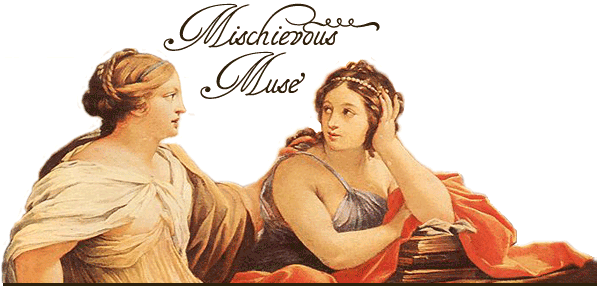






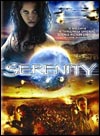
 Okay, I have to bitch.
Okay, I have to bitch. 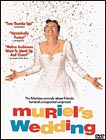
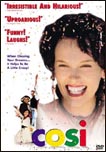
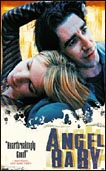
 LAS ! so all things now do hold their peace !
LAS ! so all things now do hold their peace !
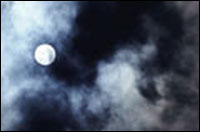

 4. Cold, windy weather. Always affects me. I'm too comfort-loving, and can't take the chill. Okay, I can take it, just don't wanna.
4. Cold, windy weather. Always affects me. I'm too comfort-loving, and can't take the chill. Okay, I can take it, just don't wanna. Y heart I gave thee, not to do it pain,
Y heart I gave thee, not to do it pain,  Well, beloveds, it is official — after working 25 hrs in the last 48, I am now officially a zombie. Perhaps I didn't quite realize what I signed up for when I took on two intense plays at once. At least, I'm enjoying myself thoroughly, and delight in being challenged. Will give a status report after I have had some sleep. Posting our sonnet for Sonnetsday, and then directly to bed.
Well, beloveds, it is official — after working 25 hrs in the last 48, I am now officially a zombie. Perhaps I didn't quite realize what I signed up for when I took on two intense plays at once. At least, I'm enjoying myself thoroughly, and delight in being challenged. Will give a status report after I have had some sleep. Posting our sonnet for Sonnetsday, and then directly to bed.

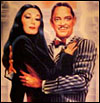 Although, I would love to learn someday - the Argentinian, sexy kind Jamie Lee Curtis and Arnold do at the end of "True Lies", or the Gomez and Morticia Addams "Cara Mia"-kind, not the pudgy middle-aged Finnish hick-kind....
Although, I would love to learn someday - the Argentinian, sexy kind Jamie Lee Curtis and Arnold do at the end of "True Lies", or the Gomez and Morticia Addams "Cara Mia"-kind, not the pudgy middle-aged Finnish hick-kind.... case in point, Angevin2's Livejournal entry:
case in point, Angevin2's Livejournal entry: Well, rehearsals have started for both 'Macbeth' and 'Proof' and I am running ragged to New Jersey. Nothing wrong with Jersey, per se — okay, lots wrong with Jersey — it's just the driving home for over an hour when you've had 14 hours of rehearsal. Exhaustion. I haven't had the energy to blog, for which I hope you will all kindly forgive me.
Well, rehearsals have started for both 'Macbeth' and 'Proof' and I am running ragged to New Jersey. Nothing wrong with Jersey, per se — okay, lots wrong with Jersey — it's just the driving home for over an hour when you've had 14 hours of rehearsal. Exhaustion. I haven't had the energy to blog, for which I hope you will all kindly forgive me. 'Macbeth' has proceeded through its "table work" — the part of the process when you sit around a table reading and discussing the text, agreeing on meanings, pronunciations, themes, characters, etc. This coming weekend we proceed to rough the blocking, i.e., where everyone should be standing and moving in the scenes, and generally figuring how not to bump into the furniture. The rest of the cast have started fight rehearsals, of which I am not part, since Lady M does not get to wield a sword. I know! Ah, well. I've worked with fencing rapiers before, but never with a broadsword, so that would have been sweet. As for Lady M, I love her. I am relishing every word. Shakespeare really went out of his way to give her some really tasty words and such visceral lines, such powerful emotions and motivations. I must have done something good in the past for the universe to grant me the opportunity to inhabit her for a while.
'Macbeth' has proceeded through its "table work" — the part of the process when you sit around a table reading and discussing the text, agreeing on meanings, pronunciations, themes, characters, etc. This coming weekend we proceed to rough the blocking, i.e., where everyone should be standing and moving in the scenes, and generally figuring how not to bump into the furniture. The rest of the cast have started fight rehearsals, of which I am not part, since Lady M does not get to wield a sword. I know! Ah, well. I've worked with fencing rapiers before, but never with a broadsword, so that would have been sweet. As for Lady M, I love her. I am relishing every word. Shakespeare really went out of his way to give her some really tasty words and such visceral lines, such powerful emotions and motivations. I must have done something good in the past for the universe to grant me the opportunity to inhabit her for a while. 'Proof' has just finished table work as well and we move to blocking tomorrow night. The play has a four-person cast and it could not be stronger — everyone is talented, skilled, and intelligent both in the sense of intellectual acumen and emotional intelligence. The work is invigorating and challenging. The text of the play is superbly written from the aspects of plot, character, and fluency of the dialogue — our challenge as actors for this one is being able to stay real, not to do too much 'acting'. The author, David Auburn, has an impeccable ear for speech and his lines read as if you were looking in on people having real conversations and real arguments. It will take a lot of emotional finesse and honesty to do it justice — the audience has to believe they are looking in on real people, forgetting they are in a theatre, as much as is possible within the medium. I think with the cast and director we have, this is an attainable goal.
'Proof' has just finished table work as well and we move to blocking tomorrow night. The play has a four-person cast and it could not be stronger — everyone is talented, skilled, and intelligent both in the sense of intellectual acumen and emotional intelligence. The work is invigorating and challenging. The text of the play is superbly written from the aspects of plot, character, and fluency of the dialogue — our challenge as actors for this one is being able to stay real, not to do too much 'acting'. The author, David Auburn, has an impeccable ear for speech and his lines read as if you were looking in on people having real conversations and real arguments. It will take a lot of emotional finesse and honesty to do it justice — the audience has to believe they are looking in on real people, forgetting they are in a theatre, as much as is possible within the medium. I think with the cast and director we have, this is an attainable goal. pitchforks and torches, else the trolldom is complete. I sure hope he does airbrushing — the last set were not retouched at all, but one would think a pro would know what to do. Ha! If not, I will take my Princess Leia shot to Walmart and have them print me those for headshots, tee hee!
pitchforks and torches, else the trolldom is complete. I sure hope he does airbrushing — the last set were not retouched at all, but one would think a pro would know what to do. Ha! If not, I will take my Princess Leia shot to Walmart and have them print me those for headshots, tee hee! Ariel had her surgery last Thursday and is doing well. She's wearing her Elizabethan collar, because she tried ripping her stomach open a few nights ago, and she looks like the RCA doggie with her own satellite dish. Quite adorable she is, too.
Ariel had her surgery last Thursday and is doing well. She's wearing her Elizabethan collar, because she tried ripping her stomach open a few nights ago, and she looks like the RCA doggie with her own satellite dish. Quite adorable she is, too. Well, I must to bed. Maybe with the help of Clearasil, some fabulous miracle will take place, and I will wake up with flawless, radiant skin. Ha, yeah, right! I do profess to be a dreamer, but I'm not THAT deluded to actually believe it!
Well, I must to bed. Maybe with the help of Clearasil, some fabulous miracle will take place, and I will wake up with flawless, radiant skin. Ha, yeah, right! I do profess to be a dreamer, but I'm not THAT deluded to actually believe it!
